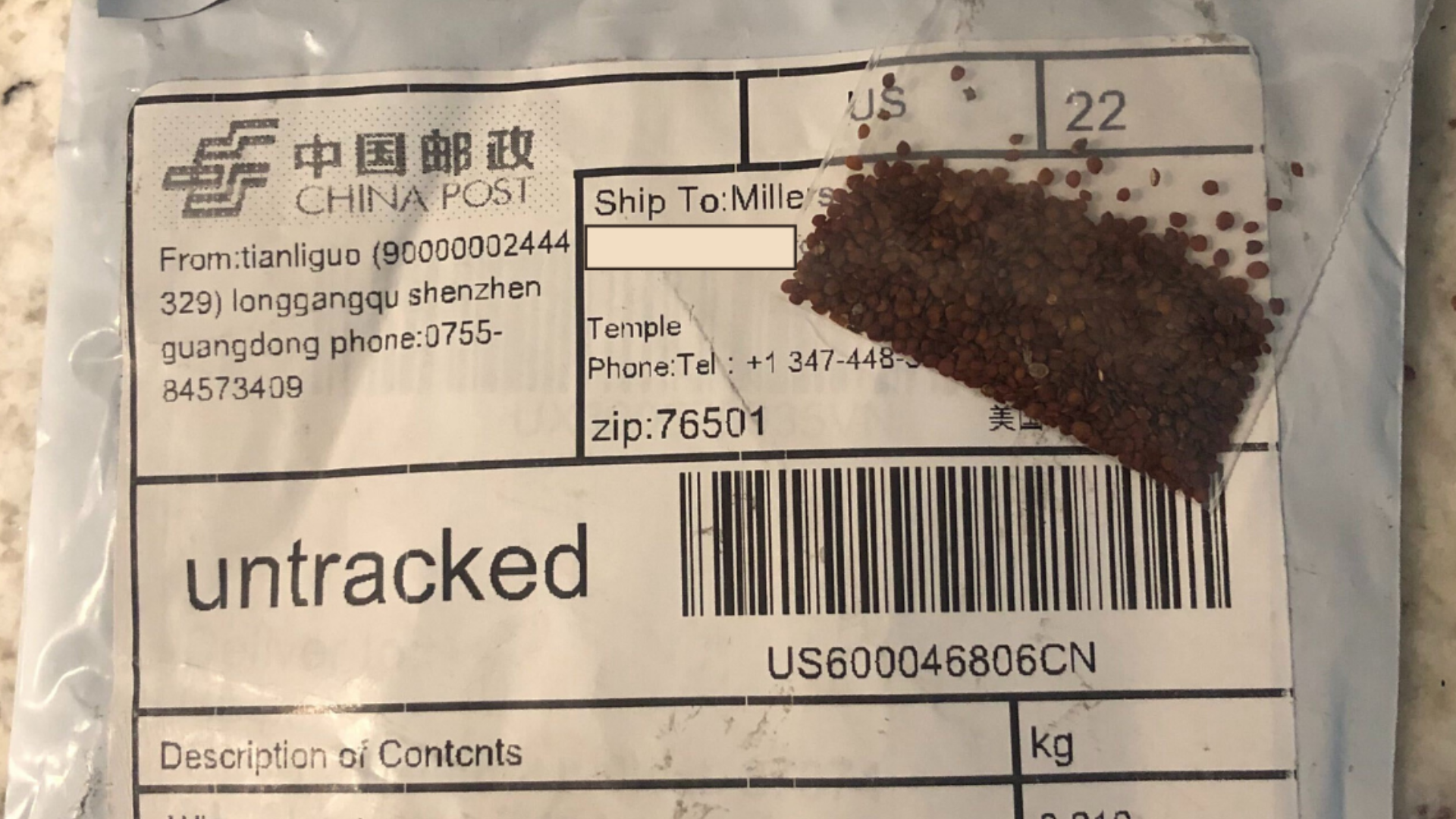TROY, Texas — Editor's Note: The video attached to this article is about packages of seeds that showed up in Minnesota.
A Troy family joined a growing list of people across the country who received a mystery packet of seeds from China.
6 News Marketing Director Lyndie Miller said she came home Monday to find the package. The label said it was a necklace from Longgang, Shenzen in the Guangdong Province of China. The package did not contain a necklace however, but instead held some strange red seeds.
The seeds have been delivered to at least 35 states. One woman in St. Louis got a package that said it contained a toy.
Regardless of what the package says, U.S. authorities said don't plant them under any circumstances, including Texas Agriculture Commissioner Sid Miller who put a statement on the Texas Department of Agriculture website.
"These packets have been mailed to multiple states, including Texas, falsely labeled as jewelry," Miller said. "Residents are advised not to plant the seeds as they could contain harmful invasive species or be otherwise unsafe. I am urging folks to take this matter seriously. An invasive plant species might not sound threatening, but these small invaders could destroy Texas agriculture."
But is China really sending us seeds that could be a danger to U.S. Agriculture? The USDA is currently testing these seeds just in case, but USDA Public Affairs Specialist Cecilia Sequeira says the packages are more likely being sent U.S. addresses as part of part of a scam where online companies use the transaction to post a fake customer review.
"At this time, we don’t have any evidence indicating this is something other than a “brushing scam” where people receive unsolicited items from a seller who then posts false customer reviews to boost sales. USDA is currently collecting seed packages from recipients and will test their contents and determine if they contain anything that could be of concern to U.S. agriculture or the environment," Sequeria said.
According to the Better Business Bureau, a "brushing scam" involves a company sending you a package to make it appear that you are the verified buyer of their merchandise. They then use the faked transaction to justify a positive review of the company online which they hope will boost sells.
While this does not threaten the person who received the packaged directly, the BBB states, "The fact that someone was able to have the items sent to you as if you purchased them indicates that they probably have some of your Amazon account information. Certainly, they have your name and address, and possibly, your phone number and a password."
Sequeira told 6 News the USDA will continue to evaluate the packages to make sure they do not pose a threat to the United States.
"USDA is aware that people across the country have received suspicious, unsolicited packages of seed that appear to be coming from China. USDA’s Animal and Plant Health Inspection Service (APHIS) is working closely with the Department of Homeland Security’s Customs and Border Protection, other federal agencies, and State departments of agriculture to investigate the situation, Sequeira said.
The Texas Department of Agriculture has stated it will work together with the USDA to protect Texas.
"TDA has been working closely with USDA to analyze these unknown seeds so we can protect Texas residents. If you receive a foreign package containing seeds do not open it or plant the contents. Keep contents contained in their original sealed package. An invasive species is an organism that is not native to a particular region. The introduction of this “alien species” can cause economic or environmental harm. In agriculture, an invasive species can destroy native crops, introduce disease to native plants and may be dangerous for livestock."
Miller said anyone who receives the seeds should email SITC.Mail@aphis.usda.gov. More information can be found here.
Popular on KCENTV.COM

